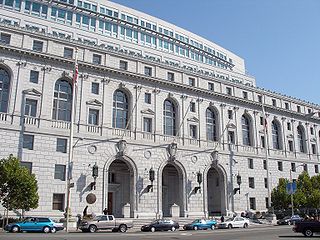Related Research Articles

Charles Ellis Schumer is an American politician serving as Senate Majority Leader since 2021 and as a United States senator from New York since 1999. A member of the Democratic Party, he has led the Senate Democratic Caucus since 2017 and was Senate Minority Leader from 2017 to 2021. He became New York's senior senator in 2001, on the retirement of Daniel Patrick Moynihan. Elected to a fifth Senate term in 2022, Schumer surpassed Moynihan and Jacob K. Javits as the longest-serving U.S. senator from New York. He is the dean of New York's congressional delegation.

Lindsey Olin Graham is an American lawyer and politician serving as the senior United States senator from South Carolina, a seat he has held since 2003. A member of the Republican Party, Graham chaired the Senate Committee on the Judiciary from 2019 to 2021.
A shield law is legislation designed to protect reporters' privilege. This privilege involves the right of news reporters to refuse to testify as to the information and/or sources of information obtained during the news gathering and dissemination process. Currently, the U.S. federal government has not enacted any national shield laws, but most of the 50 states do have shield laws or other protections for reporters in place.
Branzburg v. Hayes, 408 U.S. 665 (1972), was a landmark decision of the US Supreme Court invalidating the use of the First Amendment as a defense for reporters summoned to testify before a grand jury. The case was argued February 23, 1972, and decided June 29 of the same year. The reporters lost their case by a vote of 5–4. This case is cited for the rule that in federal courts, a reporter may not generally avoid testifying in a criminal grand jury, and is one of a limited number of cases in which the U.S. Supreme Court has considered the use of reporters' privilege.

Apple v. Does was a high-profile legal proceeding in United States of America notable for bringing into question the breadth of the shield law protecting journalists from being forced to reveal their sources, and whether that law applied to online news journalists writing about corporate trade secrets. The case was also notable for the large collection of amici curiae who joined in the matter.

The following are controversial invocations of the USA PATRIOT Act. The stated purpose of the Act is to "deter and punish terrorist acts in the United States and around the world, to enhance law enforcement investigatory tools, and for other purposes." One criticism of the Act is that "other purposes" often includes the detection and prosecution of non-terrorist alleged future crimes.

James Risen is an American journalist for The Intercept. He previously worked for The New York Times and before that for Los Angeles Times. He has written or co-written many articles concerning U.S. government activities and is the author or co-author of two books about the Central Intelligence Agency (CIA) and a book about the American public debate about abortion. Risen is a Pulitzer Prize winner.

James C. Goodale was the vice president and general counsel for The New York Times and, later, the Times' vice chairman.
The Reporters Committee for Freedom of the Press(RCFP) is a nonprofit organization based in Washington, D.C., that provides pro bono legal services and resources to and on behalf of journalists. The organization pursues litigation, offers direct representation, submits amicus curiae briefs, and provides other legal assistance on matters involving the First Amendment, press freedom, freedom of information, and court access issues.
Freedom of the press in the United States is legally protected by the First Amendment to the United States Constitution.
Reporter's privilege in the United States, is a "reporter's protection under constitutional or statutory law, from being compelled to testify about confidential information or sources." It may be described in the US as the qualified (limited) First Amendment or statutory right many jurisdictions have given to journalists in protecting their confidential sources from discovery.

Joshua Selassie "Josh" Wolf is an American freelance journalist and internet videoblogger who was jailed by a Federal district court on August 1, 2006, for refusing to turn over a collection of videotapes he recorded during a July 2005 demonstration in San Francisco, California. Wolf served 226 days in prison at the Federal Correctional Institution, Dublin, California, nearly longer than any other journalist in U.S. history has served for protecting source materials. After Wolf released his video outtakes to the public, U.S. District Judge William Alsup ordered his release on April 3, 2007. In 2007, Wolf ran for mayor of San Francisco against incumbent Gavin Newsom. The next year Wolf accepted a position at the Palo Alto Daily Post where he reported on the San Mateo County government and that of several cities within the county.
Source protection, sometimes also referred to as source confidentiality or in the U.S. as the reporter's privilege, is a right accorded to journalists under the laws of many countries, as well as under international law. It prohibits authorities, including the courts, from compelling a journalist to reveal the identity of an anonymous source for a story. The right is based on a recognition that without a strong guarantee of anonymity, many would be deterred from coming forward and sharing information of public interests with journalists.

The California Shield Law provides statutory and constitutional protections to journalists seeking to maintain the confidentiality of an unnamed source or unpublished information obtained during newsgathering. The shield law is currently codified in Article I, section 2(b) of the California Constitution and section 1070 of the Evidence Code. Section 1986.1 of the California Code of Civil Procedure (CCP) supplements these principal shield law provisions by providing additional safeguards to a reporter whose records are being subpoenaed.

The Mortgage Specialists, Inc. v. Implode-Explode Heavy Industries, Inc. is a New Hampshire Supreme Court case in which Mortgage Specialists, a mortgage lender, sought to obtain the identity of an anonymous source who provided Implode-Explode Heavy Industries (Implode), a website monitoring risky lenders, with a confidential document detailing Mortgage Specialists' loan practices. Mortgage Specialists also sought to prohibit the republication of the document and learn the identity of an anonymous individual who allegedly defamed Mortgage Specialists on Implode's website. Mortgage Specialists disputed Implode's status as a news organization, claiming that it should not be afforded the rights of a news organization under the First Amendment to the U.S. Constitution and Part I, Article 22 of the New Hampshire Constitution.
R v McManus and Harvey is a landmark Australian court case for freedom of the press, whistleblowers and reporters privilege that resulted in journalists gaining greater safeguards to protect their sources.
Jana Winter is an American reporter best known for being first to report that James Holmes had sent a notebook to his University of Colorado psychiatrist Lynn Fenton with details about his premeditated plan to kill people before he allegedly did so. She joined The Intercept in 2014 and worked there through January 2016. Previously she had been a reporter from 2006 to 2008 for the New York Post, and from 2008 to 2014 for Fox News Channel.
In 2013, the United States Department of Justice, under Attorney General Eric Holder, came under scrutiny from the media and some members of Congress for subpoenaing phone records from the Associated Press (AP). Under similar justifications, a 2010 subpoena approved by Eric Holder implicated Fox News reporter, James Rosen, as a possible co-conspirator under the Espionage Act of 1917. Investigators gained access to the times of his phone calls, and two days of Rosen's emails. Stephen Jin-Woo Kim eventually pleaded guilty to violating the Espionage Act for communicating North Korean nuclear test plans to Rosen. These investigations provoked considerable criticism from major news organizations, and precipitated the revision of media guidelines at the Department of Justice.
The United States Department of Justice under the Trump administration acquired by a February 2018 subpoena the Apple iCloud metadata of two Democrats on the House Intelligence Committee, several others associated with the committee, and some of their family members. The subpoena covered 73 phone numbers and 36 email addresses since the inception of the accounts. Seizing communications information of members of Congress is extraordinarily rare. The department also subpoenaed and obtained 2017 and 2018 phone log and email metadata from news reporters for CNN, The Washington Post and The New York Times. Apple also received and complied with February 2018 subpoenas for the iCloud accounts of White House counsel Don McGahn and his wife. Microsoft received a subpoena relating to a personal email account of a congressional staff member in 2017.

The Cannabis Administration and Opportunity Act is a proposed bill in the United States Congress to recognize legalization of cannabis by the states. The authors are Senate Majority Leader Chuck Schumer, Senator Cory Booker, and Senator Ron Wyden.
References
- ↑ "Lugar, Dodd introduce Free Flow of Information Act". Archived from the original on 2008-03-27. Retrieved 2008-04-04.
- 1 2 "H.R. 2102 (110th): Free Flow of Information Act of 2007". GovTrack.Us. Retrieved 14 May 2013.
- ↑ "Federal Shield Law is Passed by House of Representatives". AAN. Archived from the original on 2008-06-02. Retrieved 2008-04-04.
- ↑ "Administration Launches Web Site Opposing Journalist Media Shield". FoxNews.com. 2008-04-03. Retrieved 2008-04-04.
- ↑ "Remarks By John McCain To The Associated Press' Annual Meeting". 2008-04-14. Retrieved 2008-04-17.
- ↑ A new media shield law would only shield corporate media, Vice , 22 Aug 2013. Retrieved 23 Aug 2013.
- ↑ Charles Schumer and Lindsey Graham. "Free Flow of Information Act of 2009". Thomas. Archived from the original on 6 December 2013. Retrieved 18 July 2013.
- ↑ Savage, Charlie (15 July 2013). "Criticized on Seizure of Records, White House Pushes News Media Shield Law". The New York Times. Retrieved 18 July 2013.